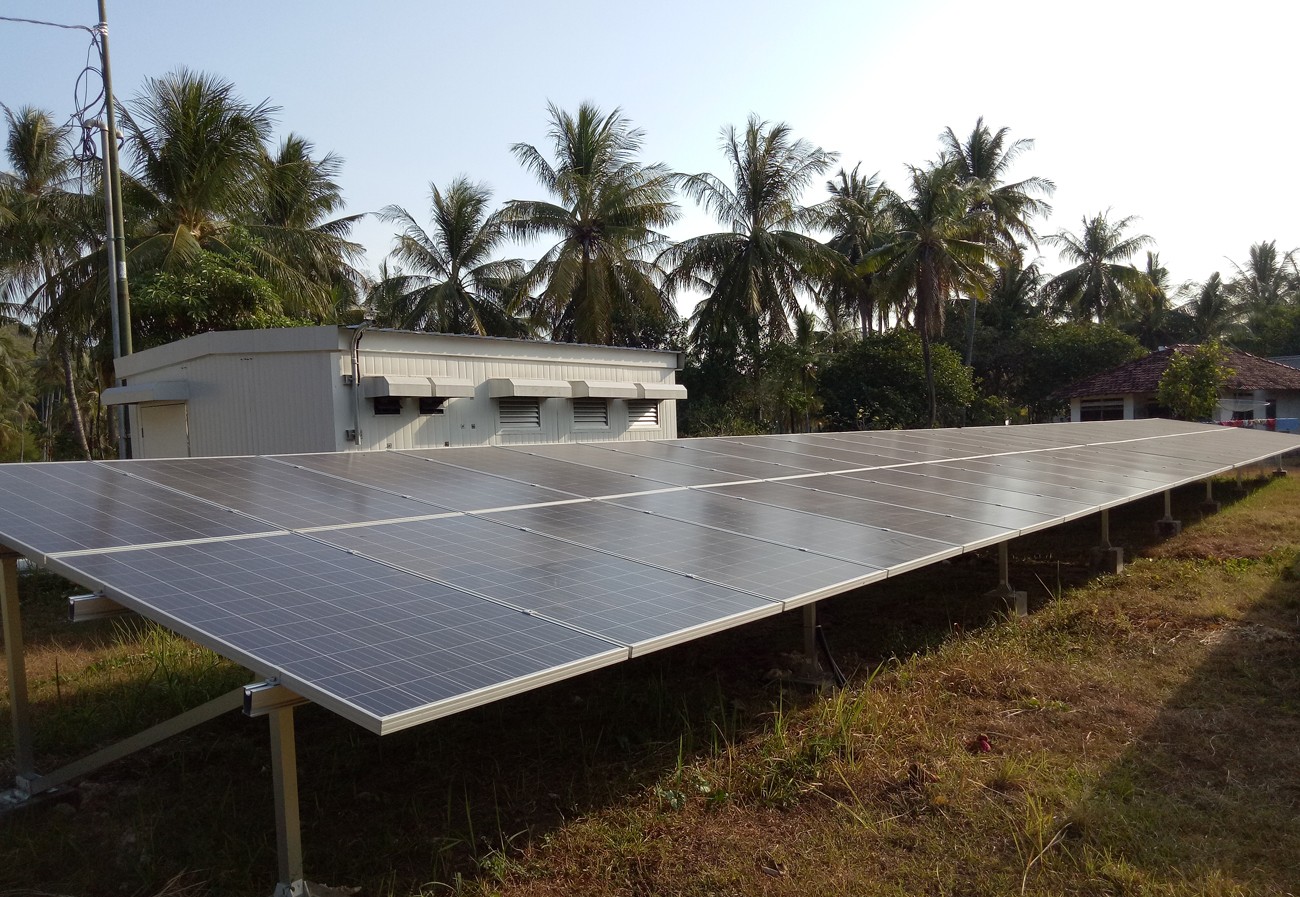Solar energy gradually replacing fossil fuel in Karimunjawa
Solar energy is gradually replacing fossil fuel in the Central Java islands of Karimunjawa, occupied by about 8,000 people, due to the operation of solar photovoltaic (Solar PV) power plants starting this August, an official has said.
Change Size
 A 10-meter-long solar photovoltaic (PV) produces 36 kilowatt of electricity in Genting Island, one of the 27 small islands in the Karimunjawa Islands district in Jepara, Central Java, that is inhabited by at least 90 families. (JP/Stefanno Reinard Sulaiman)
A 10-meter-long solar photovoltaic (PV) produces 36 kilowatt of electricity in Genting Island, one of the 27 small islands in the Karimunjawa Islands district in Jepara, Central Java, that is inhabited by at least 90 families. (JP/Stefanno Reinard Sulaiman)
S
olar energy is gradually replacing fossil fuel in the Central Java islands of Karimunjawa, occupied by about 8,000 people, due to the operation of solar photovoltaic (Solar PV) power plants starting this August, an official has said.
Karimunjawa district head Saptwagus Karnanejeng Ramadi said on Tuesday that starting Aug. 1, three outer islands – Parang, Genting and Nyamuk – have been fully electrified with solar PV power plants.
“After we held a month-long test in July, now the three islands can be electrified for 24 hours with the capacity of 1,500 watt hour [Wh],” he said adding that previously, the region had six hours of electricity per day.
The Karimunjawa Islands – three hours by boats from Jepara regency – used to require at least 35,000 liters of non-subsidized diesel fuel per month Rp 11,550 (80 US cents) per liter to fuel power plants in the district, including its three surrounding islands.
Two years ago, state-owned electricity firm PLN took over the diesel-based power plants, after which residents had to pay the same electricity rate as the people in Java because of the government’s one-price policy.
However, for the three islands, Karimunjawa district still has to allocate around 6,000 liters of diesel fuel per month.
“But the consumption [of diesel fuel] may go down to zero because of the three Solar PV power plants. The diesel fuel will only be used as backup,” said Karimunjawa district secretary Nor Soleh.
The three Solar PV power plants are part of phase 3 (ESP3) of Denmark’s environmental support program worth Rp 26 billion, whose goal is to promote renewable energy in Indonesia. (bbn)









